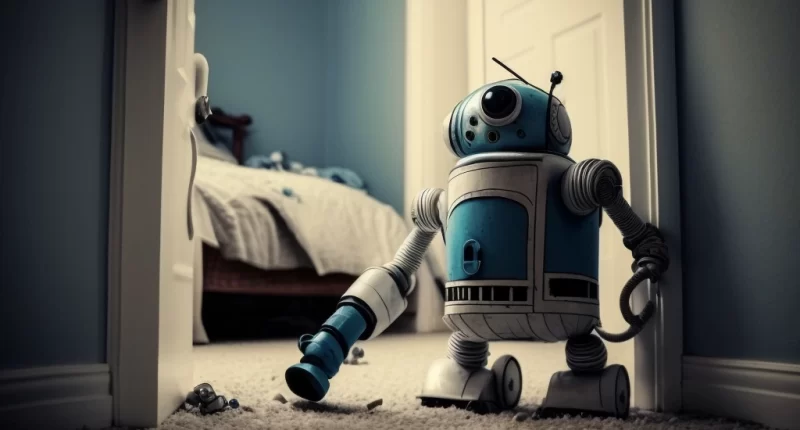Experts predict that an artificial intelligence revolution could reduce the amount of time individuals devote to household chores and caregiving, as robots are expected to be able to perform nearly 39% of domestic tasks within ten years.
A survey of 65 artificial intelligence (AI) experts in the UK and Japan revealed that shopping for groceries was the task that would most likely be automated, while caring for the young or elderly was the least likely to be impacted by AI. These experts were asked to predict the effects of robots on household chores.
But greater automation could result in a “wholesale onslaught on privacy”, warned one of the report’s authors.
“where an equivalent of Alexa is able to listen in and sort of record what we’re doing and report back”
“I don’t think that we as a society are prepared to manage that wholesale onslaught on privacy.”
Ekaterina Hertog, associate professor in AI and society at Oxford University
If successfully implemented, increased automation could promote gender equality, according to her argument. This is because women continue to carry out the majority of unpaid work. In the UK, women perform more than double the amount of unpaid work that men do, while in Japan, men do less than a fifth of the unpaid work undertaken by women.
She informed the BBC that the cost of technology could result in the usage of household robots causing “a rise of inequality in free time” as only wealthier households may be able to afford the technology.
According to the study, which was published in the journal Plos One, the participating experts projected that approximately 28% of care work, which includes teaching, accompanying a child, or taking care of an elderly relative, would be automated. However, they anticipated a 60% reduction in the amount of time spent grocery shopping.
However, predictions about robots taking over domestic work “in the next 10 years” have been made for several decades, but the reality of a robot able to put out the bins and pick lego up from the floor has remained elusive.
Hertog likened the enthusiasm surrounding household robots to the anticipation of self-driving cars. Despite being a long-standing concept, self-driving cars have yet to successfully navigate the unpredictable environment of streets, and similarly, robots have yet to operate seamlessly in homes.






